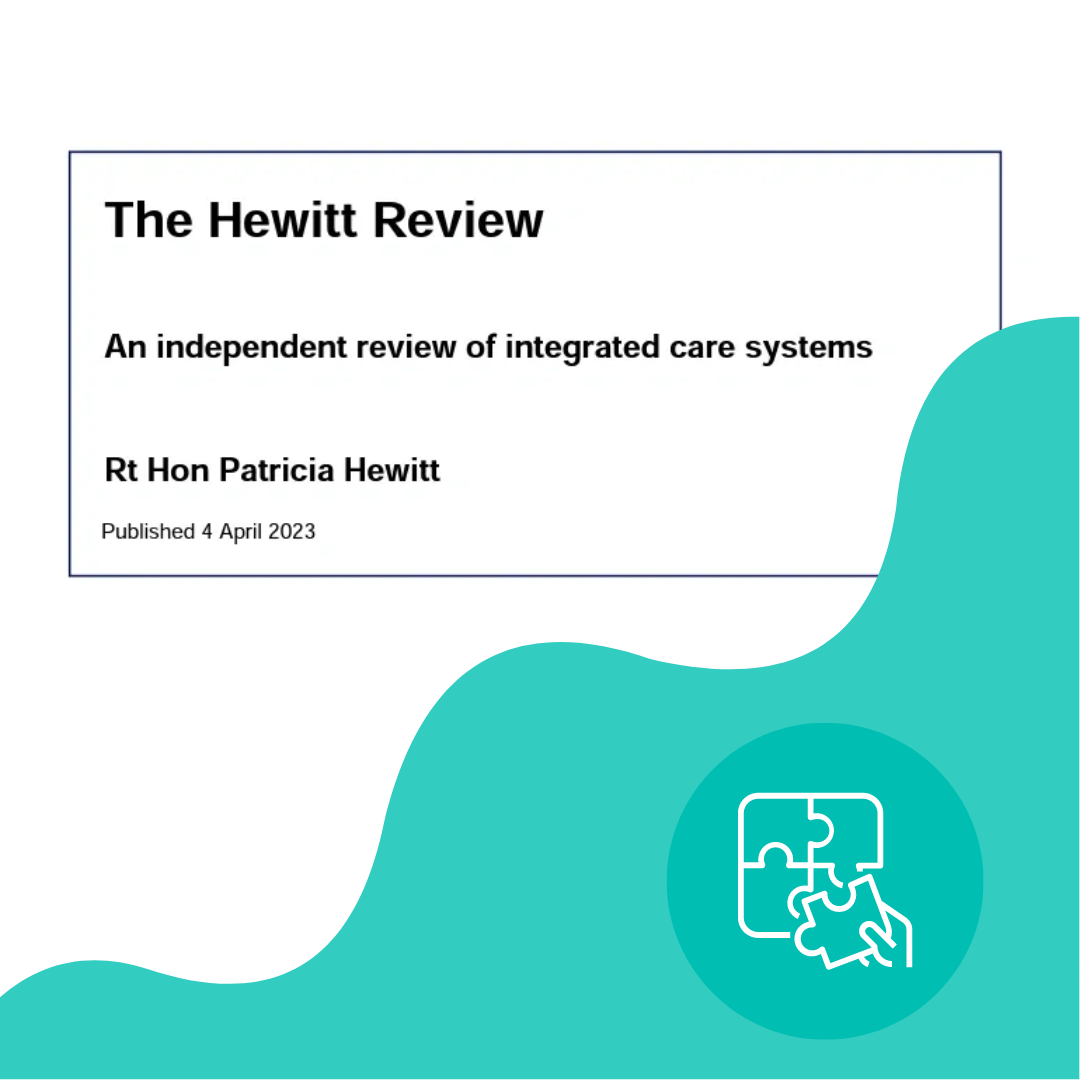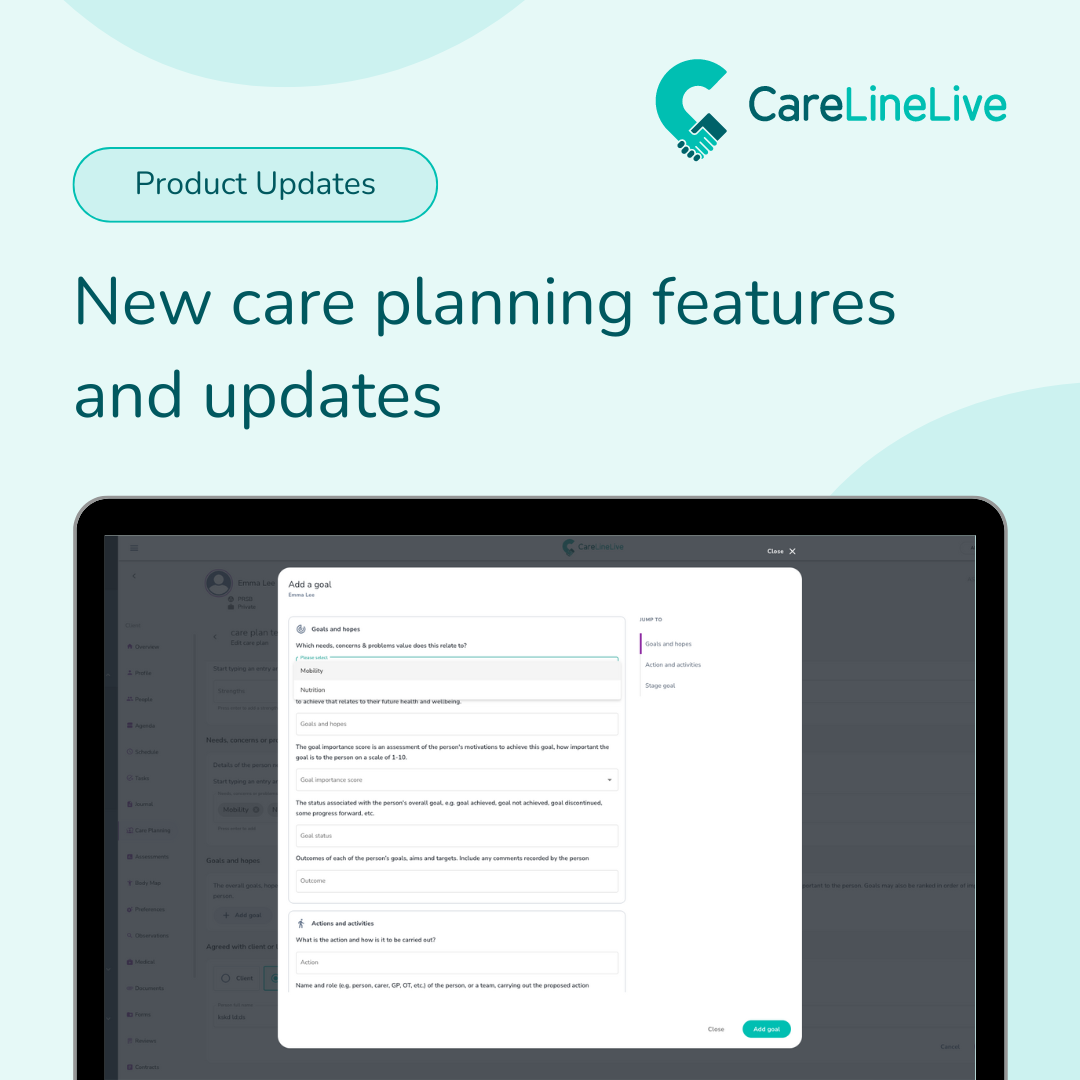The Department of Health and Social Care published The Hewitt Review in April 2023 the result of the Rt Hon Patricia Hewitt’s independent review of integrated care systems (ICSs).
Core to the review is a move away from illness to promoting health (a National Health Service rather than a National Illness Service). Better integration between those that provide health care in it’s widest sense is crucial. It isn’t hard to see the impact that home care providers can have in supporting efforts to provide better preventative health care and enhanced community services.
What are Integrated Care Systems?
Integrated care systems (ICSs) are partnerships that bring together local government, the NHS, social care providers, voluntary, community, faith and social enterprise (VCSFE) organisations and other partners to improve the lives of people who live and work in their area, in line with their four core purposes which are to:
- Improve outcomes in population health and healthcare
- Tackle inequalities in outcomes, experience and access
- Enhance productivity and value for money
- Support broader social and economic development
Each ICS includes a statutory integrated care partnership (ICP) and integrated care board (ICB).
What does The Hewitt Review say about digitisation?
The Hewitt Review is a lengthy document but we’ve been through it and pulled the content relevant to digitisation in NHS and social care settings.
The review begins by describing how, across the developed world, healthcare systems are facing the challenge of increasing pressures, public expectations and opportunities including those opened up by new digital and data technologies.
The review recognises that there is a growing number of people living with complex, long-term physical and mental health conditions, often associated with serious disabilities or ageing.
Examples are given of innovative models in healthcare. For example, a digital programme used by Dorset ICS which supports an out of hours clinical team to respond to care homes and prevent hospital admissions.
Below are some excerpts from the section on The Digital and Data Workforce. The highlights are ours.
“It is essential that we level up basic digital infrastructure in all parts of the system, instead of expecting nurses, healthcare assistants and care workers looking after people with complex conditions and multiple needs to write down essential information on paper and then spend precious time going back to the office to input the data manually.
The skills needed to deliver data and digital transformation require a professional and highly skilled workforce at the system and provider level. Many health and care staff are well-versed in the use of digital tools; as the digitisation of health and care intensifies, staff at every level need to feel equipped and confident to use the tools available. As I heard frequently from clinical CIOs and other experienced
leaders, new systems including electronic patient records are not primarily about technology: they are about transforming clinical and administrative processes to achieve better outcomes for patients, with digital tools enabling but not themselves delivering the necessary transformation.”
Our thoughts
As a software provider whose mission to to help bring digital systems to homecare providers in order to release them from time consuming administrative processes and free up more time to care, we are encouraged by the recommendations that the Rt Hon Patricia Hewitt makes.
The recommendations are in line with existing government recommendations for social care on digitising health and social care records with the aim of 80% of Care Quality Commission (CQC) registered providers in England to have digital social care records by March 2024.
Smaller and new start-up home care providers are often put off investing in digital systems, perhaps by perceived high costs but there are many providers who have reasonable pricing models. We would encourage every start-up to build using digital foundations to embed the efficiencies and advantages offered by digital from the start.
And whilst you might be tempted to go with the lowest cost provider, remember that a genuinely all-in-one system will grow as you do.
Take a look at our list of 12 things to consider when choosing home care software when you are taking your decisions.



